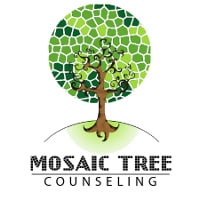Restlessness or feeling keyed-up or on edge
Mosaic Tree Counseling
Anxiety disorders are the most common type of psychiatric disorders.
Request More InformationAnxiety
Anxiety disorders are the most common type of psychiatric disorders. It’s important to note that everyone feels anxiety to some degree regularly throughout their life – fear and anxiety are adaptive and helpful emotions that can function to help us notice danger or threat, keep us safe, and help us adapt to the environment. Anxiety disorders represent states when fear or anxiety becomes severe or extreme, to the extent that it causes an individual significant distress or impairs their ability to function in important facets of life such as work, school, or relationships. It is also important that risk factors don’t at all imply that anxiety is anyone’s fault; anxiety disorders are a very common difficulty that people experience. Many patients with anxiety disorders experience physical symptoms related to anxiety and subsequently visit their primary care providers. Despite the high prevalence rates of these anxiety disorders, they often are underrecognized and undertreated clinical problems. Researchers are learning that anxiety disorders run in families, and that they have a biological basis, much like allergies or diabetes and other disorders (Maples-Keller & Michopoulos, 2018). Anxiety disorders may develop from a complex set of risk factors, including genetics, brain chemistry, personality, and life events.

This disorder is characterized by excessive anxiety and worry about a number of events and activities. Worrying is difficult to control. Anxiety and worry are associated with at least 3 of the following 6 symptoms occurring more days than not for at least 6 months:
Although not a diagnostic feature, suicidal ideation and completed suicide have been associated with generalized anxiety disorder. Successful treatment approaches generally involve medication combined with psychotherapy. However, cognitive-behavioral therapy (CBT) has been proven superior in placebo-controlled trials (Maples-Keller & Michopoulos, 2018). CBT generally includes self-reward as well as problem solving and can be as effective as medications, especially for children with mild generalized anxiety disorder. Combining CBT with medications is extremely helpful in resistant cases. We provide psychotherapies, such as relaxation therapy, supportive psychotherapy, mindfulness therapy, and CBT.
Maples-Keller, J. & Michopoulos, V. (2018). Causes and Risk Factors. Retrieved from www.anxiety.org.
Therapy Modalities
Abuse & Neglect
ADHD
Anxiety
Bipolar
Career Counseling
Communication Difficulties
Couples Therapy
Depression
Eating Disorders
Employee Assistance
Impulsive Behavior
Obsessive Compulsive Disorder (OCD)
Oppositional Defiant Disorder (ODD)
Play Therapy
Posttraumatic Stress Disorder (PTSD)
Self Esteem
Self Mutilation
Shop
Social Skills
Request More Information

